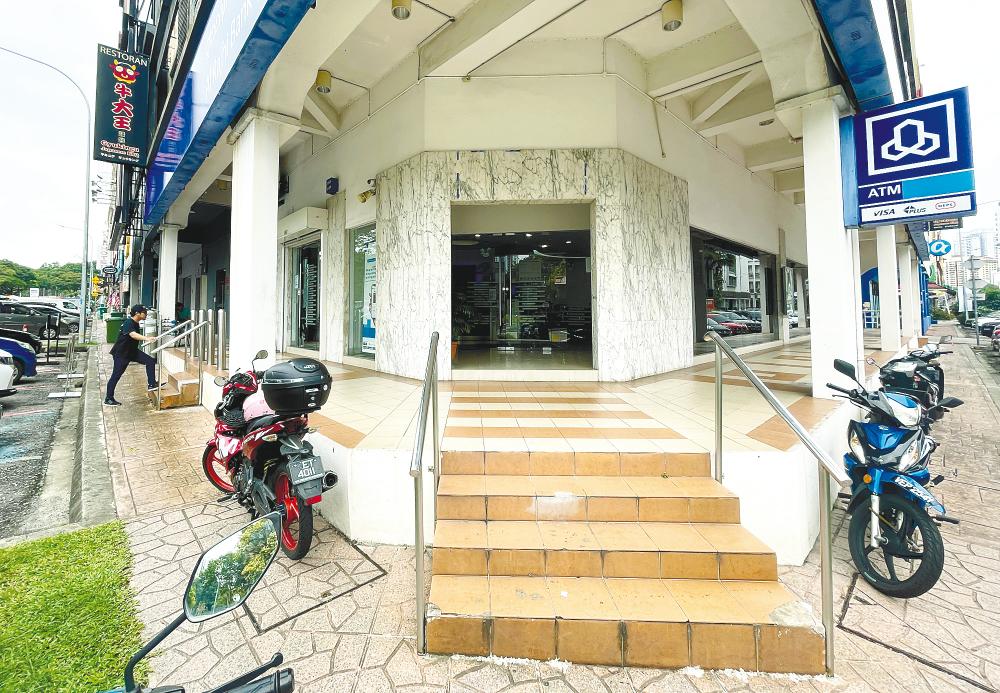PETALING JAYA: “Have some consideration for persons with disabilities (PWD).”
This is the plea by non-governmental organisation OKU Rights Matter project officer Ng Lai Thin.
“PWD have been struggling to navigate through old as well as new buildings due to the lack of facilities that are available to them .
“They are also forced to navigate through man-made obstacles, which have caused injuries or fatalities.”
Ng said some 16% of the population are categorised as PWD and around 8.7% of the country’s 33 million population are aged 60 and above.
“Malaysia has not introduced any institution responsible for the oversight, management and enforcement of compliance with the legislation that has been enacted.”
Lawyer Kokila Vaani Vadiveloo said few laws mention the requirements to build facilities for disabled persons, mainly the Uniform Building (Amendment) By-Laws 2021 and the Uniform Building By-Laws 1984 (UBBL).
“Bylaw 34A of the UBBL makes it mandatory for all public buildings to make facilities available to disabled persons. On Sept 20, 1990, an amendment was made to the UBBL at the 35th National Council of Local Government.
“The amendment introduced section 34A in the UBBL, making it compulsory for all new buildings to provide access to disabled persons to get into, out of and move easily within the buildings.
“This by-law also covers buildings (except shophouses) completed before 1993. These buildings were required to be modified by 1996 to comply with the Malaysian Standards – MS1183, MS1184 and MS1331 – unless the local authority allowed owners to vary or be exempted from the requirements.”
Kokila said the authorities can act by issuing a warning notice, imposing a fine, ordering the building to be made accessible to PWD and prohibiting the use of the building if the owners do not provide adequate and suitable facilities for them.
She said the Housing and Local Government Ministry is responsible for ensuring that facilities for PWD are provided as required by the UBBL.
Universiti Pendidikan Sultan Idris social communication student Tan Suet Yee, 24, who is a PWD, expressed concern about the lack of facilities for the disabled at the university.
“The lift for the disabled at the Faculty of Language and Communication broke down for about six months, causing much inconvenience for me to move around the faculty.”
Tan, a person with dwarfism, also said the university hostel did not have furniture suitable for her size, and this too had been an issue during her stay there.
She said the university has since taken initiatives to provide the disabled with easier navigation, such as hostel rooms located on the ground floor for disabled so that they do not have to use the stairs.
“But the buses provided by the university which we take to go to classes and nearby places are not disabled-friendly as the steps are too steep for me.”
Tan urged the university to install more facilities for the disabled at the hostels as well as maintain the existing ones to minimise the risk of injuries to the disabled.
Contacted by theSun, a person who identified herself as the public relations officer of the Malaysian Institute of Architects but did not give her name, declined to comment on why there was still a lack of facilities for the disabled.
She referred theSun to a practising architect, who also declined to comment on the matter.









